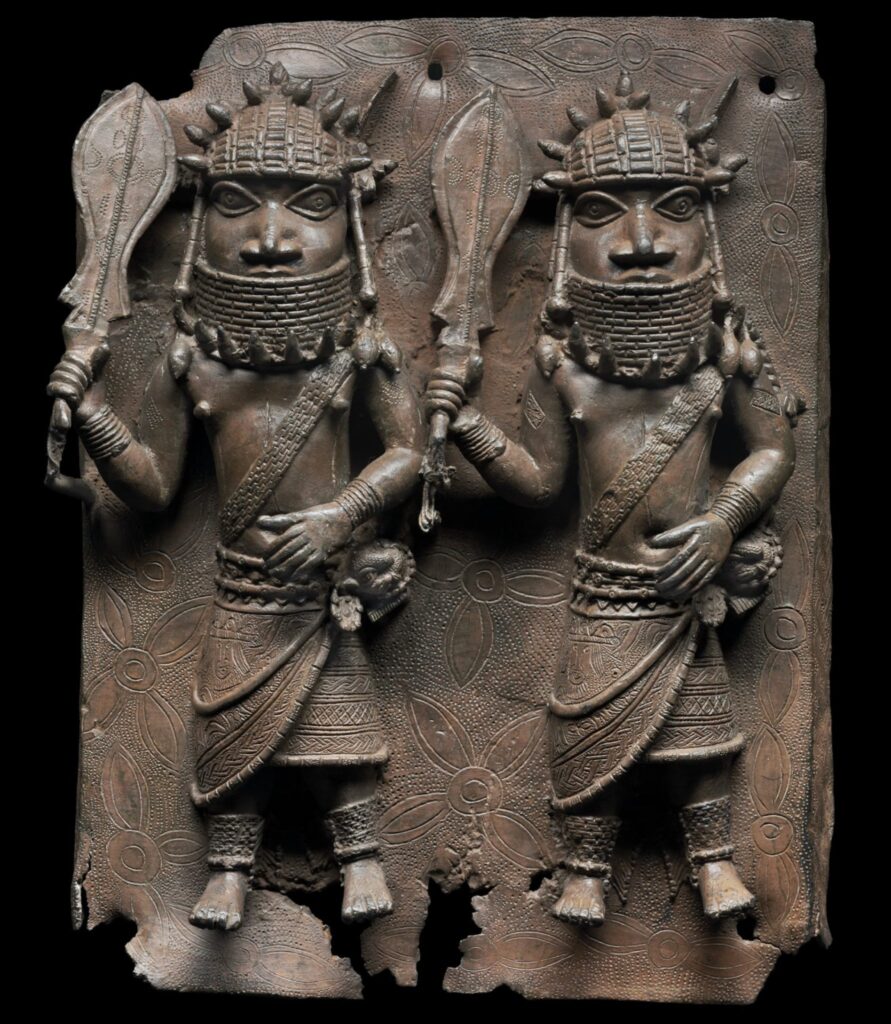I don’t know how to welcome the reader properly so weitin dey sup, or should I say E ai? Or Como vai? Yes, I’m speaking Portuguese because both Portugal as well as the ancient Benin Kingdom will be topics of discussion today. I remember a time in college where I was sitting in the fishbowl of the library hanging with some friends. A lot of us were first generation American kids from Ghanaian and Nigerian ethnicities. One of my cute friends with dimples and fine face always mentioned Benin this and Benin that. Then, casually mention going to Nigeria. Geography nerd me was like “Huh? So… what country are we talking about? Benin? You need to teach me French then ”. She laughed and clarified she actually was from Nigeria and the city her family came from was Benin. Quickly, I made a dash for Google, and I also connected the dots that she and a few other acquaintances came from the area of what we now know as Edo state in Nigeria.
The Portuguese came to the shores of Bini (or Benin) Kingdom at around 1483, the same year after paying our dear friend, Nzinga a Nkuwu( a.k.a. Joao I) a visit. The term Benin is actually a corruption of the word Bini in Portuguese. Portugal’s main agenda in these lands was to find riches, and procure labor for colonies founded on African forts and islands as well as a newly founded colony in the Western Hemisphere: Brazil. They marveled at the advancements of Benin City, the capital and said it felt like Lisbon but better. The streets were clean, city walls were unreal and majestic and lamps were lit everywhere at night to guide the way.
The partnership between the two kingdoms seemed beneficial as they exchanged ambassadors relaying their interests. The exchange of brass and copper manillas (bracelets used for currency) for slaves seemed to benefit (for the meantime) both parties as well since Bini had a system of slavery like other African nations, states and societies did for labor, reproduction and status. Portuguese words such as saber (which means “to do”) are used to this day and has been corrupted to sabi in today’s Nigerian pidgin English. Pikin, which means child, is also derived from the word “pequeno”. There is also a lot of evidence of Bini influence in the Portuguese creole used in Sao Tome, which makes sense since enslaved persons were bought from Bini Kingdom and sent there to work on plantations.
By the 1500’s, the exchange of ivory, palm oil, pepper and gold from Bini and the interior set the kingdom up for success. Guns and manufactured goods flowed abundantly into the kingdom. This allowed them to conquer surrounding people around the Niger Delta and Yorubaland and finally Lagos after conquering the Yoruba (Awori) people. Mercenaries from Portugal assisted in their agenda – history etched through the beautiful brass/ivory sculptures of Bini artisans highlighted these experiences.
Bini Sculpture of Portuguese mercenary soldiers and their flintlock muskets
Mixed feelings really come into play whenever I think about Atlantic relations between Europe and Africa. A part of me wants to be angry and think nothing good came of the interaction. Western Europe should have never touched the continent. But history is messy, nuanced and really doesn’t fit narratives that are constructed to fit one’s agenda, whether you are a pan-Africanist or a racist bigot. That mercenary etched in the sculpture could have been a close friend of the king(oba) yet that same day, he could be whipping slaves in Sao Tome. The good part was definitely the cross pollination of new words and ideas. The people (slaves and envoys) sent to Lisbon definitely had a positive impact on their government and infrastructure. I want to end on a good note though and just say, I found it interesting how Portugal and Bini’s partnership before British colonization allowed for new ideas and business to occur, creating a cascade of good and bad effects on Bini society. Good night and we shall meet again.
